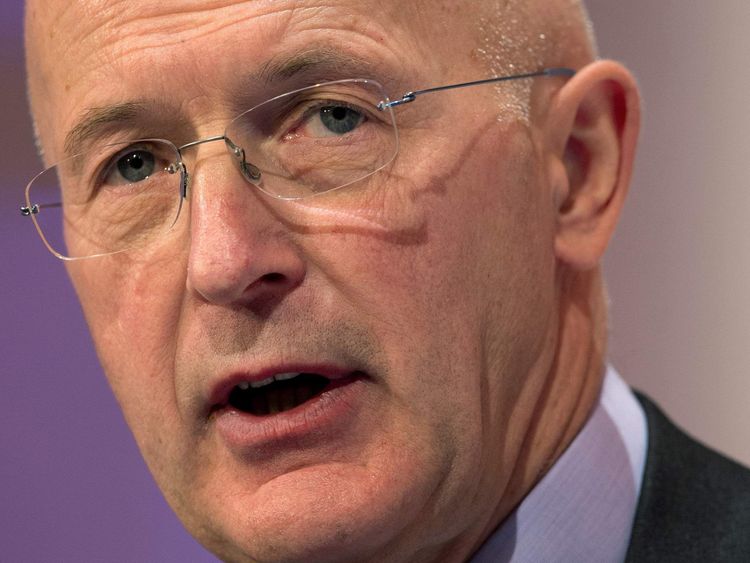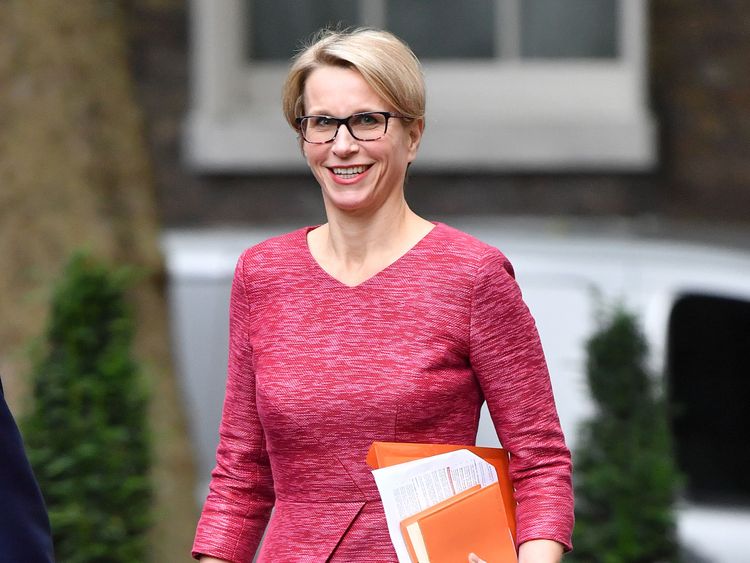GSK chairman Sir Philip Hampton to step down
Drugs giant GlaxoSmithKline announced this morning that Sir Philip, its chairman since May 2015, is looking to step down and that a search for his successor has begun.
The news comes just weeks after GSK said it would pool its consumer healthcare assets with those of US rival Pfizer – potentially paving the way for a break-up of the company.
Announcing his decision to move on, Sir Philip said: “I believe this is the right moment to step down and allow a new chair to oversee this process through to its conclusion over the next few years and to lead the board into this next phase for GSK.”
Eyebrows have been raised at the decision as, having led the GSK board for just four years, Sir Philip has been in the chair at the drug-making giant for roughly half as long as the average FTSE 100 chairman.
Investors might reasonably have expected him to stick around to oversee the demerger of GSK, not least because it is likely to be a complex process, taking several years in all probability.
But his departure is one that will have City headhunters licking their lips in anticipation.
For Sir Philip has proved himself, at various points in his career, to be both an agent of stability and an agent of change depending on the circumstances of the company where he was at the time.
There are always going to be businesses in need of a radical shake-up or in need of stability.
GSK, the third Footsie company Sir Philip has chaired, has needed both at various times.
When he arrived, GSK had just issued a profits warning and was also facing accusations of bribery by Chinese regulators, so the ship required steadying.
More recently, though, Sir Philip – having overseen the appointment of Emma Walmsley as chief executive – has offered her support in delivering radical change.
Stability was very much the watchword at the two previous FTSE companies Sir Philip chaired.
His first was J Sainsbury, where from 2004 to 2009 he proved to be a steady hand on the tiller, giving the then chief executive, Justin King, the space and time he needed to execute a turnaround at the supermarket while also seeing off an unwanted takeover bid by a Qatari-backed fund.
He then moved in 2009 to Royal Bank of Scotland, shortly after it had been rescued by the government from going bust, overseeing the appointment of Ross McEwan as its chief executive.
He then navigated the bank through the treacherous waters of a referendum on Scottish independence, and the beginning of the process in which the government’s stake was sold to investors.
If those three jobs have all required Sir Philip to offer stability, earlier in his career, it was radical change that he delivered as the finance director of no fewer than four more FTSE companies.
The first of these was British Steel, where from July 1991 to January 1996, he was part of a management team that steered the company through a horrendous collapse in demand and steel prices.
By 1993, British Steel was the only major steelmaker in Europe making a profit.
He then moved to British Gas which, at the time, was wrestling with some tricky negotiations with wholesale gas suppliers just as it was being confronted with the loss of its monopoly on household supplies.
Sir Philip oversaw the demerger of British Gas into two companies – Centrica, responsible for supplying gas and related services in Britain – and BG Group, operating the pipeline and storage arm of British Gas and its international businesses.
After the demerger was completed, in 1997, Sir Philip joined BG Group and oversaw a further demerger into BG, an oil and gas exploration and production company and Transco, the pipelines business.
This demerger generated huge value, ultimately, for shareholders including millions of private investors who had bought shares of British Gas at its original privatisation in 1986.
His next stop was BT which, with debts approaching £30bn, was in a state of crisis.
Sir Philip oversaw a £5.9bn rights issue – then a record for a British company – the demerger of the mobile phone business O2 and the sale of the Yellow Pages directories business and BT’s Japanese operations.
The debt was brought down and BT was put back on an even keel.
From there, it was off to Lloyds TSB, then the UK’s third-largest bank, which had been losing market share to rivals which, ironically, included both RBS and HBOS – the bank that, years later, would come close to capsizing the Black Horse bank.
He has since described his spell at Lloyds as his least favourite corporate berth and left after just two years when the board refused, as he had urged, to cut the dividend.
Such a cut, with the benefit of hindsight, would probably have helped Lloyds emerge unscathed from the financial crisis.
In addition to his plc jobs, Sir Philip also led a government-backed review on the shortage of women executives with Dame Helen Alexander, the late and much-missed former chair of United Business Media.
The Hampton-Alexander Review is generally regarded as having had a positive impact.
Where Sir Philip arrives after his time at GSK remains unclear.
The former Lazards banker may have decided that, at 65 and with nearly three decades at the top of an array of leading UK businesses, he should be devoting more time to his passion of sailing.
That is unlikely to stop him being in demand the next time a juicy FTSE chairmanship comes up.
Source: Read Full Article




